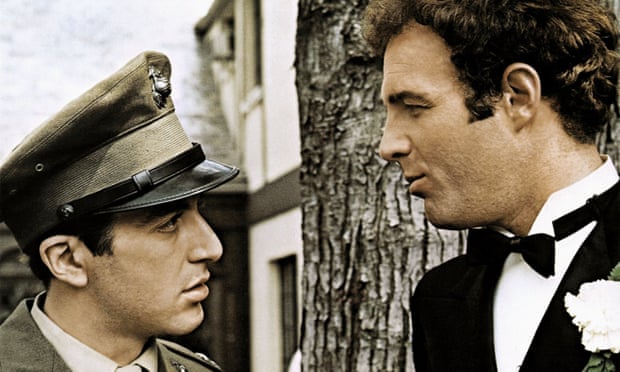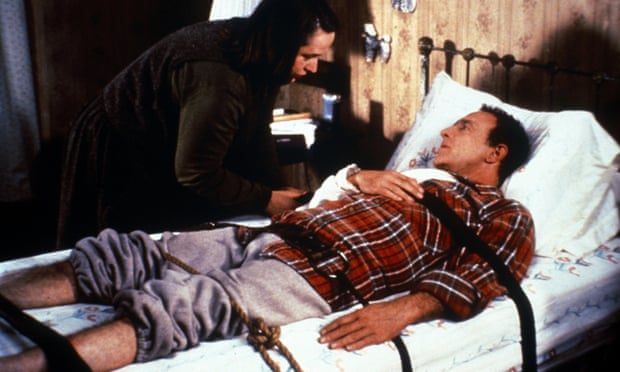James Caan obituary | Movies
There are some film stars for whom the frisson of fame and the exultation of acting are not enough. James Caan, who has died aged 82, sought satisfaction in extreme sports, drugs and a colourful personal life. However, the many superb portrayals he gave in scores of films and TV episodes will outlive the gossip and sensational headlines.
His defining role came as Sonny Corleone in Francis Ford Coppola’s The Godfather (1972). Caan, who was nominated for an Oscar, was perfect as the hedonistic and volatile heir apparent to the Corleone family, whose bloody ways end in his own death. The film, which points to the links between the mafia and American capitalism, portrays men such as Don Corleone (Marlon Brando), the godfather of the title, as businessmen. But Sonny, a remorselessly violent hoodlum driven by family loyalty, represented the true nature of the Corleone family.
Soon after The Godfather, Caan was wallowing in violence again as the embittered hero of Rollerball (1975). Although presented as the moral centre of the film, Caan’s character, Jonathan E, is as sadistic as everyone else around him. More violence came his way as the brutal CIA man in Sam Peckinpah’s The Killer Elite and, in contrast, he portrayed Billy Rose, the gambling, philandering husband of Barbra Streisand’s Fanny Brice in Funny Lady, all in the same year.

Caan was well teamed with Geneviève Bujold in Claude Lelouch’s romance set in the US, Another Man, Another Chance (1977), and with Jane Fonda in the western Comes a Horseman (1978). The latter title chimed with Caan, who was once dubbed the Jewish cowboy because of his earlier participation in rodeos and his ownership of a stable of horses.
The film critic Pauline Kael wrote of Caan at that stage in his career that “he’s not all of a piece as a performer: he’s never quite himself – you feel he’s concealing himself rather than revealing a character”. He had then recently emerged from a messy divorce from his second wife, which may have affected his subsequent performances. In 1981, Caan’s sister Barbara, to whom he was very close and who ran his production company, died of leukaemia, aged 38. “She was my best friend, my manager,” he said. “She was the only person I was afraid of.” Then he had a motorcycle accident and his house was nearly destroyed by a landslide.
There were several flops, undeservedly in the case of Michael Mann’s Thief (1981), released as Violent Streets in the UK, and deservedly with the whimsical Kiss Me Goodbye (1982) – Caan’s attempts at comedy were slow to be appreciated. His first and last directorial effort, Hide in Plain Sight (1980), in which he starred as a man in search of his ex-wife and children, was generally given a chilly critical reception. Caan explained that “some jerk at MGM altered the movie”.
On top of this, he walked off the set of The Holcroft Covenant (1985) and was replaced by Michael Caine. A few years earlier, when he was still bankable, Caan had turned down three Oscar winners, M*A*S*H, Kramer vs Kramer (“it was such middle-class, bourgeois baloney”) and One Flew Over the Cuckoo’s Nest.
During his fallow period between 1982 and 1987, he spent his days coaching his son Scott’s soccer and basketball teams, and his nights at the Playboy Mansion (“There were tons of girls over there and, call me sick, call me crazy, but I liked ’em!”) and taking cocaine. Although he received professional help and was cured of the addiction, he was unemployable in Hollywood.
“I hardly ever go out,” he told an interviewer in 1986. “I spend most of my time upstairs in my bedroom, wearing out one spot on the bed where I sit when I’m making phone calls.” When he had not appeared in a film for four years, people in Hollywood were beginning to ask, “What ever happened to …?”

Then his friend Coppola gave him the lead in Gardens of Stone (1987). Finding a new gravitas, Caan was utterly convincing as a stiff-necked but compassionate army sergeant who feels that “there is nothing to win, and no way of winning it” in Vietnam. Caan’s comeback became entrenched with a difficult role in Rob Reiner’s Misery (1990) – he spends most of the movie bedridden and doped as a seriously injured writer kept captive by his “No 1 fan” (Kathy Bates, who won the best actress Oscar).
But Caan hit the headlines again in the 90s for the wrong reasons. When his brother Ronnie was held at gunpoint by gangsters, Caan enlisted the help of his mafia pal Anthony “the…
Read More: James Caan obituary | Movies

